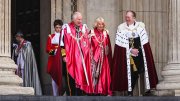Recently, a news story caught my eye: an old friend and Dunster classmate, Michael Mainelli, was elected the 695th Lord Mayor of London.
While we both graduated from Harvard in 1984, Michael began as class of 1981, interrupting his undergraduate studies to work on the first fully digital map of the world, which predated Google Earth by almost two decades.
Michael and his wife Elisabeth are among the most down-to-earth, pull-up-a-chair people I know. So, upon hearing of his mayorship, I felt obliged to give him a call and, assuming I could get through to Hizzoner, ask “What gives?”
We connected by phone without delay. “May I call you Michael?” was my first question, and not a bad one, it turns out. “Well, if you want the whole formula, it’s the Right Honorable, the Lord Mayor Alderman Professor Michael Mainelli—but you can just say My Lord Mayor.” I had to ask how much of this formality had gone to his head. “By the time I’m used to Lord Mayor, I’ll be out of office,” he said. (His term is one year.)
Michael, you’ll be happy to know, is the first graduate of an American college to serve as Lord Mayor (sorry, Yale). He is also the first U.S.-born, first Italian citizen, and third Irish citizen.
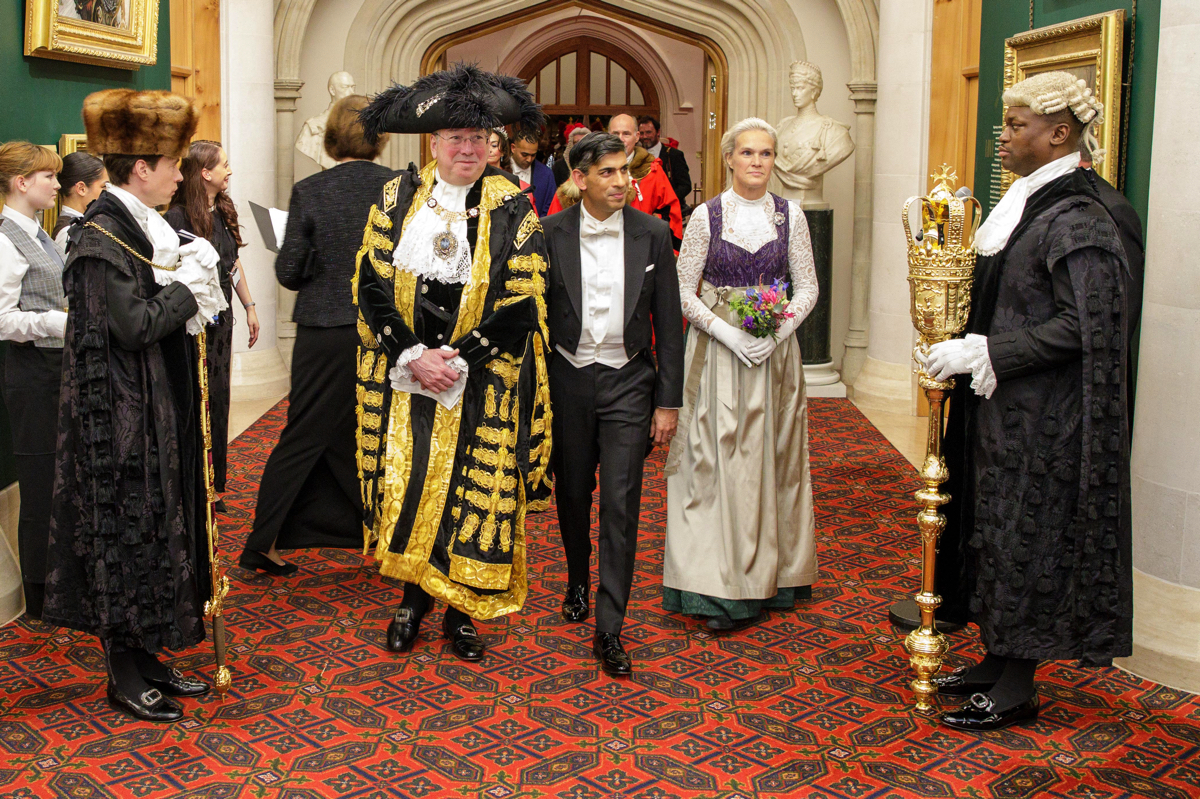
I informed Michael that I was interested in writing a piece on his new gig. With the same generosity of spirit I recalled from our Dunster House days, Michael said simply, “Why don’t you come up and shadow me for a day? Stick around for dinner, too!” That dinner happened to be the annual white-tie banquet of the Worshipful Company of Furniture Makers, one of the City’s livery companies. I gratefully accepted.
Michael’s Cursus Honorum
In preparation, I boned up a bit on the Lord Mayoralty. The post is among the oldest elected civic offices in the world, the first Lord Mayor having been named in 1189. The Lord Mayor’s main role is to advocate for the commercial interests of the City of London, which for most of the last millennium meant its guilds. In the modern era, focus has shifted to London’s financial and other commercial sectors. The Lord Mayor is not to be confused with the Mayor of London, a position created a mere 25 years ago.
Oh, and the matter of titles. I used to think that Pooh-Bah in The Mikado was over-the-top satire (“Lord Chief Justice, Commander-in-Chief, Lord High Admiral, Master of the Buckhounds, Groom of the Back Stairs, Archbishop of Titipu, and Lord Mayor […] all rolled into one”). That is, until I read Michael’s job description. A sampling of his 90 or so official titles includes Admiral of the Port of London, President of Gresham College, Chief Patron of the Guild of Macebearers, and Trustee of St. Paul's Cathedral. Since he serves as Chief Justice of the City of London, a central chair is reserved in his honor in all courts of the Old Bailey. Not that the office doesn’t keep up with the times; the list of defunct offices is equally impressive, and includes Barge Master, Clerk of the Coal Market, and Deputy Oyster Meter. Michael is resurrecting some of these in an honorary capacity. Here’s hoping for Salt Shifter, if only to have a Lord-Mayor-worthy tongue-twister (“she shifts salt by the seashore”).
Michael’s cursus honorum began through the livery companies that have their roots in the medieval guild system. Michael is a Past Master of the World Traders, Craft-Owning Freeman of the Watermen & Lightermen, and Honorary Liveryman of multiple liveries. Many of these stay close to their origins (the Glovers, the Carpenters). Some are recent coinages (the Worshipful Company of Water Conservators, the Worshipful Company of Tax Advisers). The Lady Mayoress (Elisabeth), herself a liveryman of the Masons, provided further color. Her company is active in training young stonemasons and also encourages ‘mature’ students, eager to use their hands to ply one of Britain’s traditional crafts. Some ancient liveries have modernized creatively: the Fan Makers are now into wind turbines; the Pattenmakers—who originally made an elevated shoe that avoided the muck of London’s streets—now promote the footwear industry.
Michael was elected Alderman in the City of London in 2013, the first of two prerequisites to being Lord Mayor. The second was met by his election as Sheriff of the City of London in 2019. He served two terms, a feat not seen since 1228 (as the City Remembrancer—yes, a real post—could tell you). Michael’s exploits at Dunster House did not bode well for this role. His Harvard roommate Brit Lundell ’81 recalls: “I fully credit Michael as originator of the schemes that led to us discovering that the steam tunnels under Harvard Yard did indeed allow access to the Widener Library basement, or that the locks to our rooms and mailboxes were keyed the same as the locks to several doors in various buildings around Harvard (including the door to the roof of the William James building), or that if you wanted to prank Dunster House by changing the time on the clock of the House tower, it would be best not to do it the evening before the start of daylight saving.” Maureen Morrison, Dunster security guard at the time, notes: “Let’s just say that were I to make a list of residents most likely to be Sheriff of London, Michael would not have made the cut.”
To become Sheriff, one typically designs a coat of arms, which is added to the “Shrieval Chain” (“shrieval” being the adjectival form of sheriff). Michael’s is a wonder, reflecting his intellectual interests, whimsy, and connection with his life partner, Elisabeth.
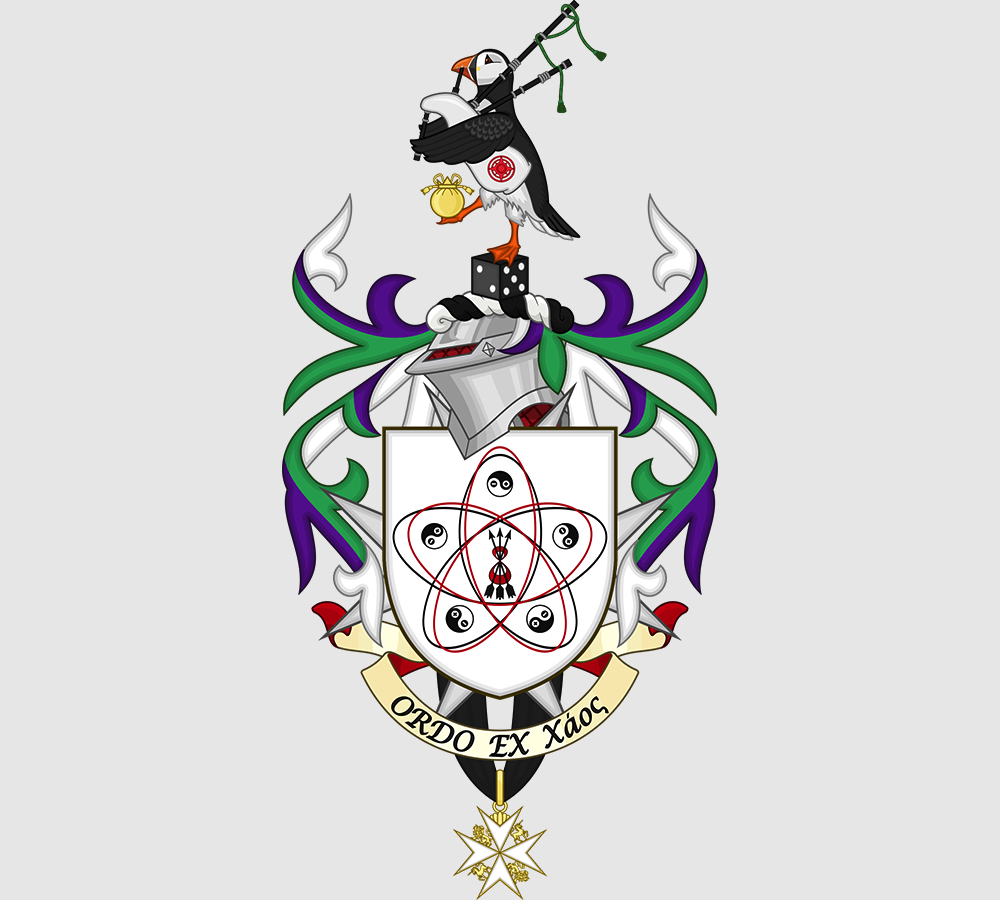
Crossing the Channel
Thus fortified by my advance reconnaissance, my wife, Yuko, and I set out from our home in Paris. Immediately upon arrival at Mansion House, I was informed that the Lord Mayor would meet me in 20 minutes.
Punctual to the minute, Michael greeted me with his familiar smile and twinkling eye. And off we went down Queen Victoria Street, Michael’s assistant briefing him on the talk he was about to give to a group of Scandinavian bankers. No sooner had we arrived than a lavalier microphone was pinned to his lapel, and he bounded up to the stage, speaking on his priorities as Lord Mayor in his mellifluous baritone.
Michael brings a decidedly scientific and analytical perspective to the Lord Mayoralty. He is probably the first to enunciate his goals as measurable deliverables in PowerPoint slides. One illustrates his overarching theme “Connect to Prosper”, which unites leaders from London’s forty learned societies, seventy universities, 130 research institutes, and 24,000 businesses to solve big global challenges. Michael has also spearheaded an Ethical AI Initiative (over 5,000 professionals in 50 countries have taken the ISO standards course, and over 30 nations have signed Michael’s Walbrook AI Accord), which he described in his presentation. He touched further on his Space Protection Initiative, which uses space-debris-retrieval insurance bonds to keep space clutter-free to help meet the UN’s Sustainable Development Goals. Finally, he spoke about the Net Zero Delivery Summit where he will soon host world leaders.
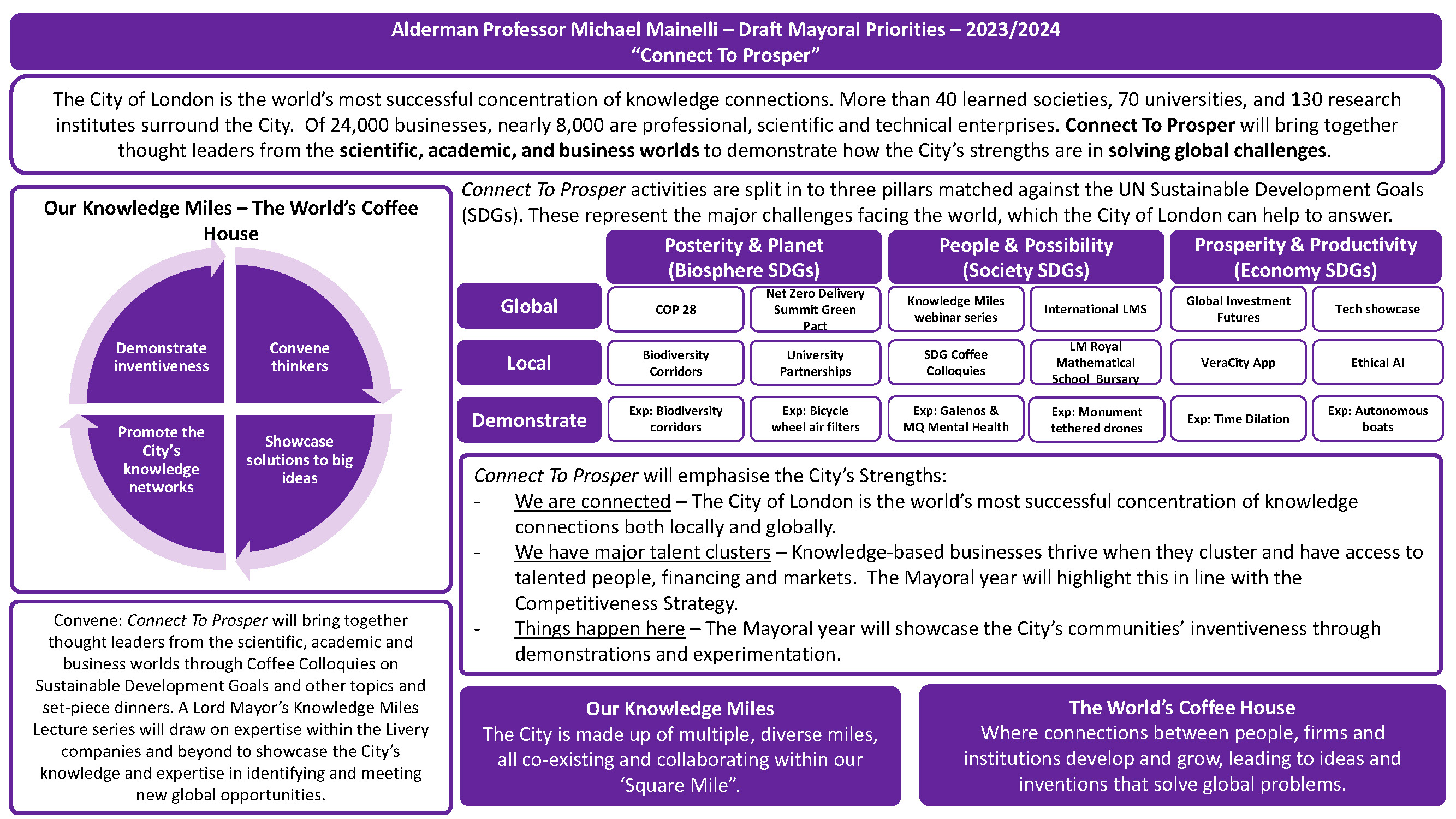
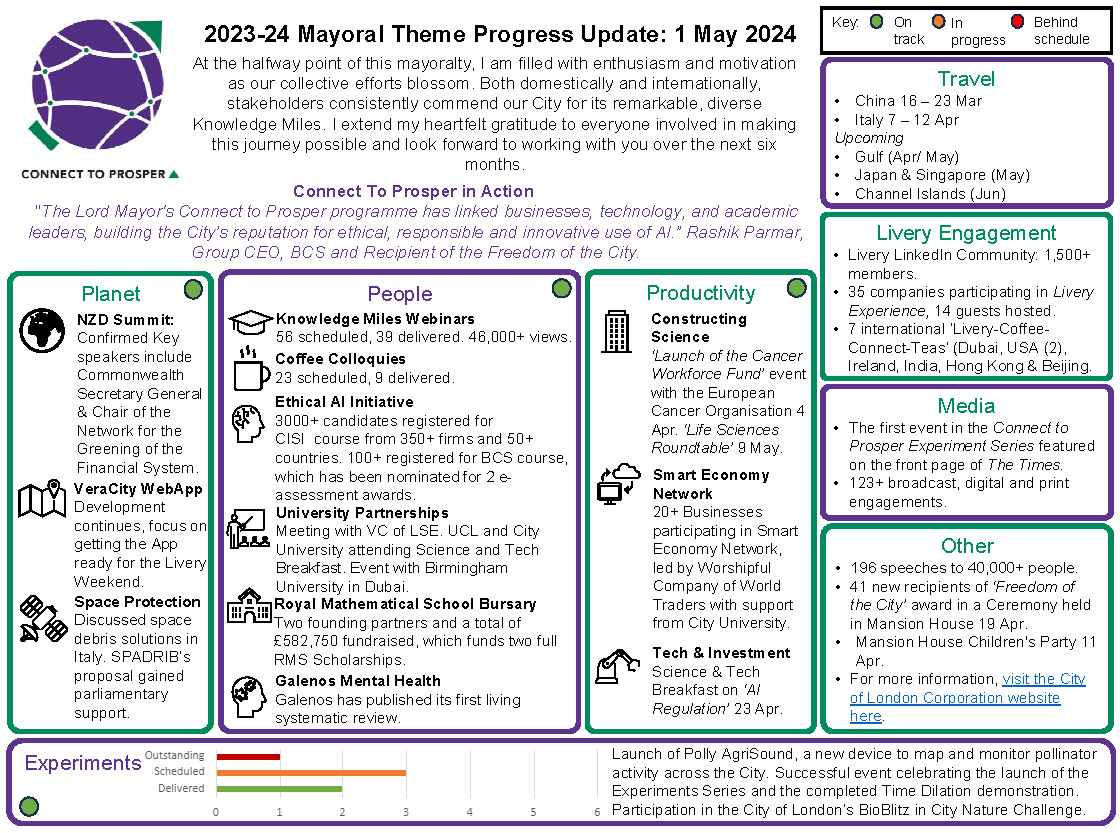
As we walked back toward Mansion House in the shadow of St. Paul’s, I couldn’t avoid thinking of how well Sir Christopher Wren’s epitaph fit Michael – si monumentum requiris circumspice (“if you seek my monument, look around you”). Inspired by London’s long tradition of coffee houses–in the 18th century, the City hosted some 700 to 800 of them—Michael is sponsoring fifty in-person and virtual coffee houses on a range of cutting-edge themes. In the words of the Lady Mayoress, “Michael has found a position where he can sparkle with ideas, and there are enough people around him to pick them up and make them happen.”
Michael treats the City as a sort of laboratory. In one highly publicized experiment, he demonstrated Einsteinian time dilation (that time travels faster at greater heights) by comparing two atomic clocks, one at NPL (the home of time in the UK) the other on the 61st floor of 22 Bishopsgate, the tallest building in the City. The City is also Michael’s playground—in June he will host the Lord Mayor’s Appeal Abseil Challenge: “Take on the dizzying height of the Leadenhall Building, also known as the Cheesegrater, and head up to the 47th floor where a team of abseiling experts will show you the ropes before descending an impressive 215m accompanied by an instructor.”
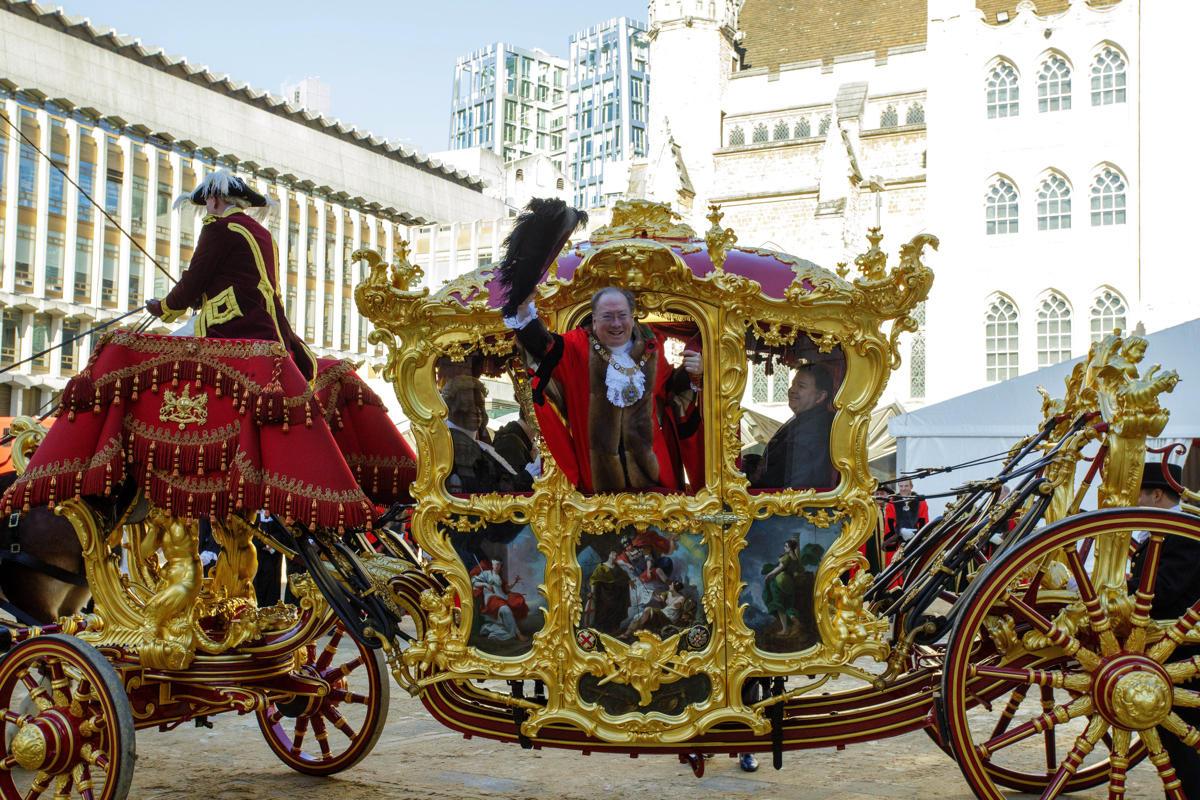
The City’s signature event each year is the Lord Mayor’s Show, which celebrates his or her election (mostly his, but a few Lady Mayoresses are helping buck tradition). The Show dates back 800 years and claims to be the oldest continually televised live broadcast on the BBC. The procession of 7,000 includes the livery companies, sheriffs, aldermen, pikemen, musketeers, the macebearer, and the swordbearer—all coordinated by the Pageantmaster. It has been immortalized by Samuel Pepys, Canaletto, and Hogarth. The focal point is the Royal Coach (“the oldest ceremonial vehicle in regular use in the world” per the City Surveyor), which bears the Lord Mayor and Lady Mayoress, the former wearing his coronation robe and bearing the jewel-encrusted Crystal Scepter (given to the City by Henry V). The formal highlight of the three-mile route is the Lord Mayor’s oath at the Royal Courts.
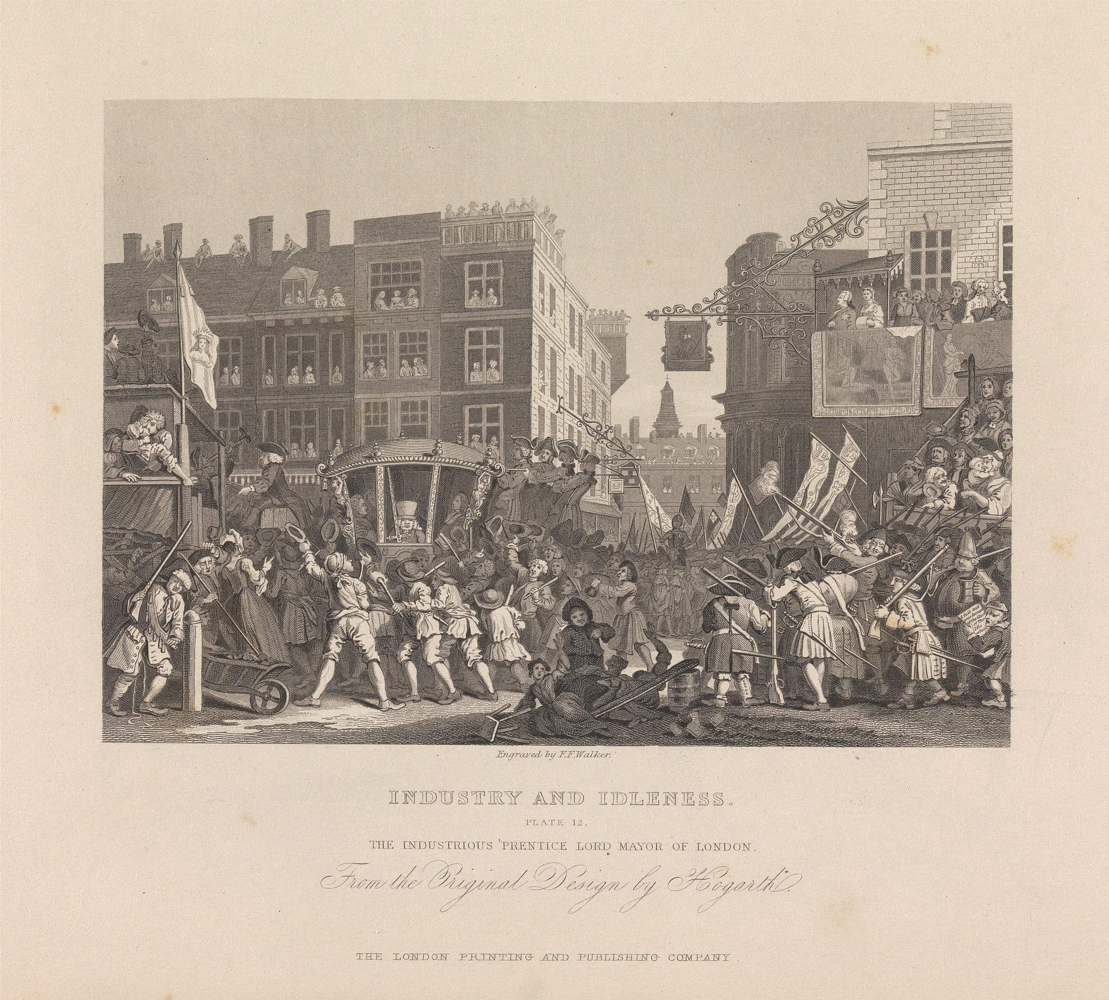
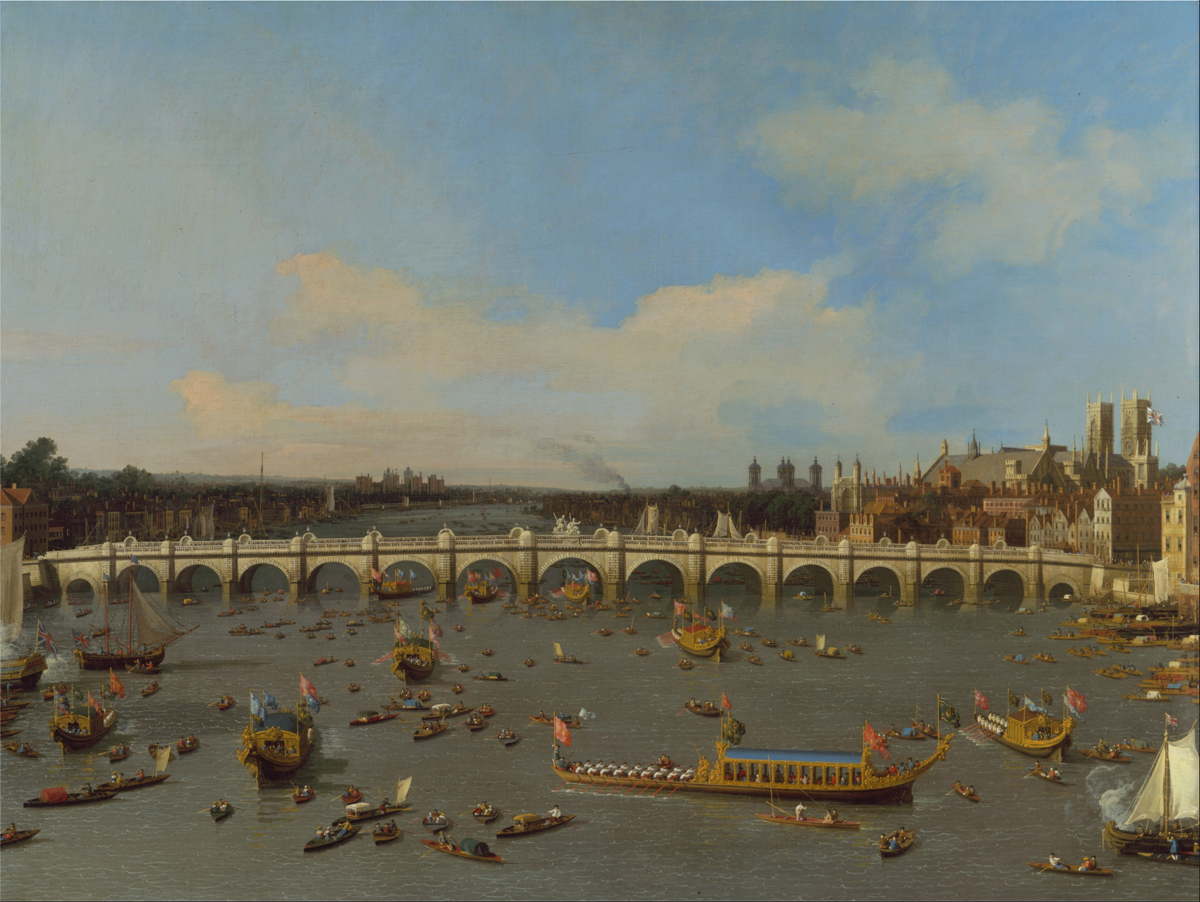
Westminster Bridge, with the Lord Mayor's Procession on the Thames by Canaletto | IN THE PUBLIC DOMAIN
Over the course of his term, Michael will have visited some 25 countries and spent 100 of his 365 days abroad. He will have spoken at some 880 formal events and hosted countless dignitaries.
Back to Mansion House
First, a surprise guest! Another classmate of Michael’s (May Pian-Smith ’81, now associate professor at Harvard Medical School) had just given a lecture in Birmingham and called to see if she might “crash” for the night. Of course she could—and got an invitation to the Furniture Makers’ dinner to boot (the Lady Mayoress cheerily furnished a gown from her wardrobe).
Off we all went for a personal tour of the famed plate collection. Three people work almost full time polishing the gold and silver. A centerpiece of the treasure house: three ceremonial swords, one of which would be used two days later at a ceremony at St. Paul’s.
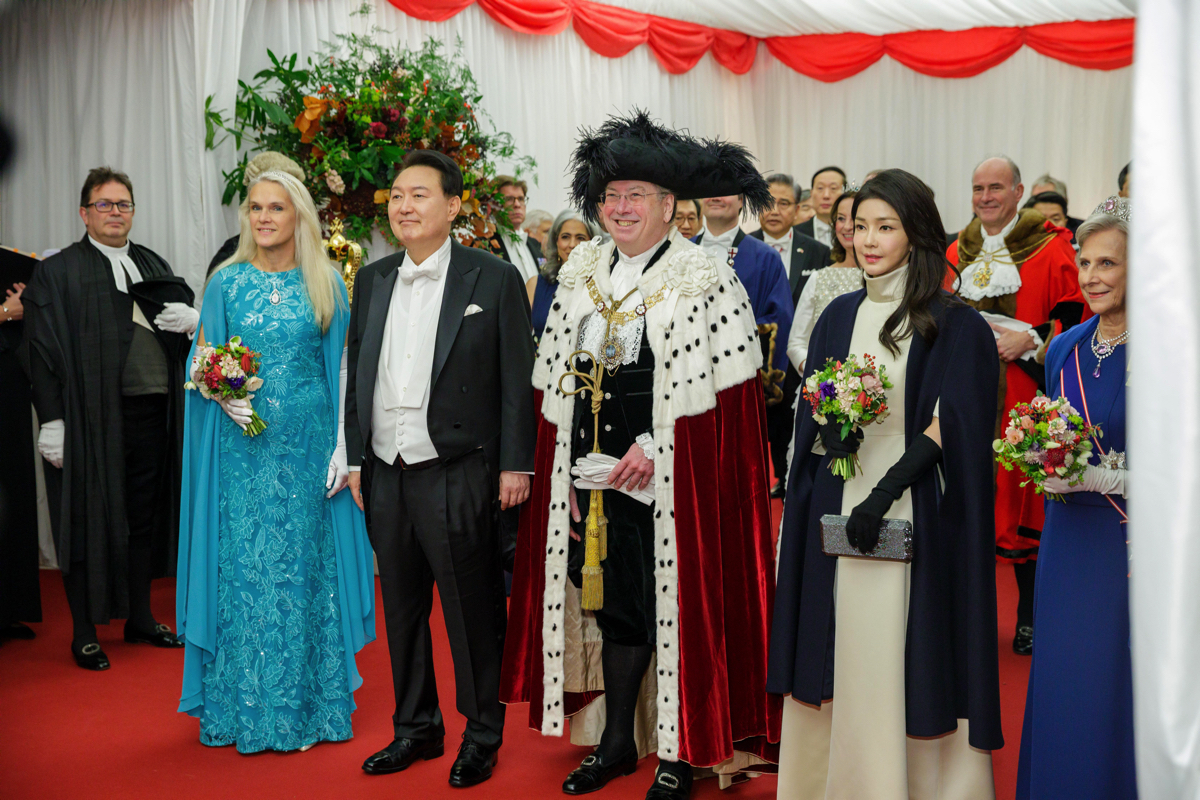
Next up was a glimpse at the Lord Mayor’s wardrobe with Gordon Harrold, one of the Lord Mayor’s footmen. The caveat of Henry David Thoreau (class of 1837), “beware of all enterprises that require new clothes,” does not, strictly speaking, apply to the Lord Mayor, most of whose wardrobe is decidedly old. Words can hardly do it justice; let’s just say that Liberace's wardrobe couldn't hold a candelabra to the Lord Mayor’s. We walked past a table brimming with pins, medals, broaches, chains, and items with names that only his footman would know for sure. The closet contains such treasures as the Scarlet Gown lined with musquash (“The cap on the back is added when you become Lord Mayor, as is a short train,” explained Chief Attendant Mark Mojsak); and the Violet Gown normally adorned with American bear fur—Michael did not want to exploit “one of his North American brethren” and opted for fake fur.
Michael’s sense of self-irony is never far away. Dispelling one persistent myth, he notes: “I don't wear tights, just high socks with a drawstring.” From his acceptance speech as Lord Mayor: “Many of you will know Russell, who owns Graham Browne, the City tailor of Bow Lane. Last week he asked, ‘Would Sir care for a little extra banqueting room?’—How brusque is that?”
The next stop was with Tim Rolph, Swordbearer of London, a position dating to the 14th century. A graduate of the University of Cambridge in history, he oversees many aspects of protocol. He contextualized the role of ceremony which, he stressed, only accounts for about 10 percent of the position. Ceremonial elements should fulfill one of two requirements. Some embody a special concept: the service soon to take place at St. Paul’s, where the King, Lord Mayor, and Swordbearer execute a meticulously choreographed exchange of the Pearl Sword, symbolizes the relationship between the City and the Sovereign. Others, like the Lord Mayor’s Show, build community, generate good PR, and support charitable causes.
Dinner with the Worshipful Company of Furniture Makers
After a half day shadowing the Lord Mayor, I needed a nap. How he and the Lady Mayoress manage to keep up this pace all day, every day, for a year surpasseth understanding.
At cocktails before dinner, I met a few of the dignitaries. One was Alderwoman Dame Susan Langley DBE, one of the current sheriffs of London. (“How should I address you?” “Call me Sue.”) She touched on the role of women in these high offices—she is one of a handful of women sheriffs in a history dating back to the 7thcentury. The shrieval coat of arms itself harbors unsavory elements—even today, women’s coats of arms in England must display the bearer’s marital status (not so the men’s) and have other substantive restrictions. She is striving to undo some of these anachronisms with the full support of the current Lord Mayor.
Dinner proper was in the Egyptian Room, where the ornate ceiling felt almost as high as St. Paul’s. Toasts were given to the King and Queen, the Lord Mayor and Sheriffs, and we all toasted “The Worshipful Company of Furniture Makers, may it flourish root and branch forever, and good health to the Master.” Michael spoke, punctuating his comments with jokes designed to elicit groans, which hit their mark (one related to “turning the tables,” if I recall correctly after not a few glasses of Vieira de Sousa port). After dinner, we retired for a “stirrup cup” in the salon, where I re-encountered Gordon the Footman (“If we’re in luck, the Lord Mayor just might make an appearance with his bagpipes.”)
As the last guests departed, the Lord Mayor invited May and us upstairs for a nightcap. The Lady Mayoress poured us a glass, while her husband had a wardrobe change. Michael reappeared, in an old pair of shorts and regular socks (no garters), and instantly we were exchanging stories as if we were back in the Dunster dining hall and the march of time had barely advanced.
What’s Next
My visit had come at the precise midway point in the one-year Mayoral term. The day before the next Lord Mayor’s Show, at the stroke of midnight (OK, 3:00 pm to be more accurate), gone will be the coach, the footmen, the robes, and the scepter. The Lord Mayor and Lady Mayoress enter a period of Purdah with no public appearances.
Will it be hard saying goodbye to “all the stuff” (to quote Bernadette Peters in The Jerk)? Michael: “I will probably miss having two footmen.”
Michael and Elisabeth were the perfect hosts, even asking if I might extend my sojourn — Tuesday would feature a dinner with the Worshipful Company of Insurers, and Wednesday the shindig at St. Paul’s. Sadly, duty—and laundry—called.
“Thank you for your time, Lord Mayor.”
“Actually, it’s ‘My Lord Mayor,’” Michael couldn’t resist, with a Dunsterian wink.
